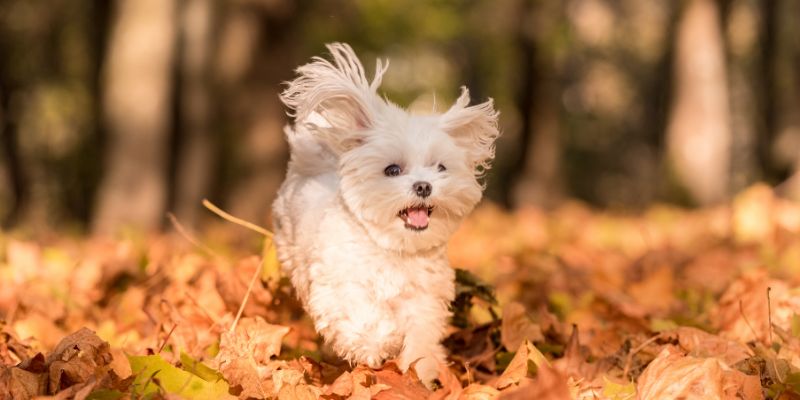
Another seasonal change is upon us; as the leaves turn and the weather cools down, it is important to remember the things in our environment that could pose a danger to our pets. It is important that if your pet ingests any of the items listed below, that you contact your vet immediately. We recommend working on your dogs ‘drop’ or ‘leave’ command; by making sure they will not consume something if you tell them not to, the ingestion of potentially fatal items can often be avoided.
Mushrooms
At this time of year it’s common to see wild mushrooms pop up in lawns and woodlands. While most mushrooms are safe to consume, identifying those that are non toxic or toxic is incredibly difficult and best left to expert mycologists. It is therefore wise to always treat any wild mushroom ingestion as a poisoning. Ensure you keep your dog on a lead around any areas where fungi may grow. Removing and safely disposing of any wild mushrooms in your garden is a good idea.
Try to take a sample of the mushroom they have eaten or take a photo to help identify the species – photos need to include the top side and the underside. If it is not possible to identify the species, then your pet will be treated based on their symptoms and the results of any testing the vet recommends.
Acorns
Acorns contain tannins, a chemical which is toxic to dogs. Signs of poisoning include gastrointestinal upset and in severe cases can lead to kidney and liver failure. Acorns can also cause an intestinal blockage if ingested by smaller dogs. When out on walks with your dog, be mindful of areas where acorns have fallen and keep a close eye on them. If they fall into your garden, we would recommend raking them up before your dog is allowed outside, and it may be necessary to muzzle train your dog with an appropriate muzzle, to prevent them from being able to pick them up if they are particularly prone to trying to eat them.
Conkers
Like acorns, conkers contain a chemical toxic to dogs if ingested. The chemical, called aesculin, can cause vomiting, diarrhoea, abdominal pain, lethargy and collapse and in rare cases can be fatal. The conkers themselves can also pose a risk of intestinal blockage in ingested. It’s important to never encourage your dog to play with conkers and use a toy or treat to distract them from areas when conkers have fallen. The same advise as for acorns can also be applied in terms of removing them from your garden and muzzle training to prevent them from being eaten.
Although serious acorn or conker poisoning is rare, always contact your vet if you think your dog may have eaten any.
Anti-freeze
Anti-freeze products which contain ethylene glycol are toxic to cats and dogs. Pets only need to ingest a tiny amount to cause kidney failure; even a small amount licked from their paws after walking through a spillage can be enough to be fatal. Early sings of poisoning to be aware of include:
- ‘Drunken’ or wobbly gait
- Weakness
- Seizures
- Vomiting
- Collapse
Unfortunately, cats are especially attracted to the taste of anti-freeze so it’s important to be vigilant in its storage and usage. Ensure all anti-freeze is kept secure and out of reach of pets and dispose of used containers in a bin that your pets cannot access. Garages and driveways should be checked for leaks or spillages and any anti-freeze spills should be cleaned up thoroughly with water before pets are allowed access to the area. Most importantly, you should contact your vet if you suspect your pet may have ingested any anti-freeze.
Rotting leaves and fallen fruit
Mouldy and decaying organic matter such as rotting fruit or compost piles may contain toxins such as tremorgenic mycotoxins and aflatoxins. These toxins can cause gastrointestinal upset, fever and seizures in severe cases. Whilst rare, ingesting of these toxins can be fatal so it is important to contact a vet if you suspect your pet has ingested any mouldy fruit or decomposing leaves.
Rat bait
As rodents begin to move inside in search of warmth and food, the use of rat and mouse poisons increases. Unfortunately, these poisons are designed to be tasty and deadly to animals. If you suspect your pet has eaten or had access to any form of rat poison you should contact your vet immediately. As with any case of poisoning, you should give the vet as much information as possible about the product that has been ingested, bring the packet with you if possible. Rat poisons can differ in the symptoms they cause, but the most common symptoms of poisoning include bleeding gums, blood in you pet’s urine or faces, bruising, coughing and weakness.
Halloween candy
Remember to keep that stash of Halloween candy out of reach of pets. Chocolate contains a toxin called theobromine which dogs and cats cannot metabolise, potentially leading to gastrointestinal upset, tremors and possibly death. Keep chocolate out of reach of pets, and make sure everyone in the household knows that chocolate is for you, not your pets!
Spring bulbs
Autumn is when gardeners plant their bulbs, like tulips and daffodils, in time for spring. These bulbs can be toxic to pets if ingested, so keep them out of reach and ensure budding canine gardeners are not digging them up for a secret snack!
Call us on 01435 864422 if you think your pet may have ingested something potentially toxic.

